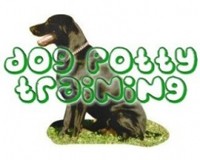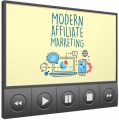 License Type: Master Resell Rights
License Type: Master Resell Rights  File Size: 182 KB
File Size: 182 KB File Type: ZIP
File Type: ZIP
 SKU: 24620
SKU: 24620  Shipping: Online Download
Shipping: Online Download
Ebook Sample Content Preview:
Have you ever noticed that as soon as you start fussing, your puppy hangs his little head and tucks his tail between his legs in despair? He knows you’re upset and has no idea what to do about it.
If it’s because of his “accident” on the floor, he’s really confused. He had to potty and you weren’t there to take him out - or you were too busy on the computer to stop and notice his needs.
At some point his bladder couldn’t take it anymore and now he has your attention, but in a negative way. Scolding a puppy (or even an adult dog) that is new to your home for accidents is useless.
All you’re teaching is that you have a short temper and your love is conditional. You don’t show what you want him to do, so nothing is learned. Positive reinforcement focuses on teaching what you want the puppy to do instead of shouting about what you don’t want.
With positive reinforcement, the puppy makes the association between what he just did and your praise. Since he desperately wants to please you, he tries to do it again for your approval.
With each reinforcement, the behavior becomes more and more automatic so the housetraining takes hold. Accidents happen - even to a dog that’s housetrained. Upsets in the routine, visitors, home remodeling, and holiday schedules are just a few times that can cause your dog to be confused about what’s expected.
When you find an accident, clean it up. Never rub his nose in it or scold him verbally. If your dog seems to go to a certain place, like a lesser-used dining room to potty, then restrict access to that room by closing the door or putting up a child’s gate.
If your dog has recently been left at a kennel for days or weeks, you may need to repeat the earlier crate training and provide more frequent potty breaks. Do as you did when he was a puppy and make a chart of these breaks so that you can predict the dog’s elimination patterns and intentionally time his breaks closer to them.
Your dog depends on you to give him the potty opportunity when he needs it. Your dog will go when he needs to, so make sure his potty break meets those times. When accidents look like diarrhea, your dog is having stomach upset not trying to defy you.
Don’t punish him for what he can’t prevent. Check the dog food. Is it out of date? Have you left dog food out for several hours? That can be a food danger. Make sure that no one in the family is feeding table scraps or junk food to the dog.
These are not suitable for the dog and can easily lead to stomach upset. Just as with humans, diarrhea or other sudden change in bowel habits can mean that your dog has a medical problem. You’ll feel horribly guilty if you scold your dog, only to learn he couldn’t control the potty problem.








